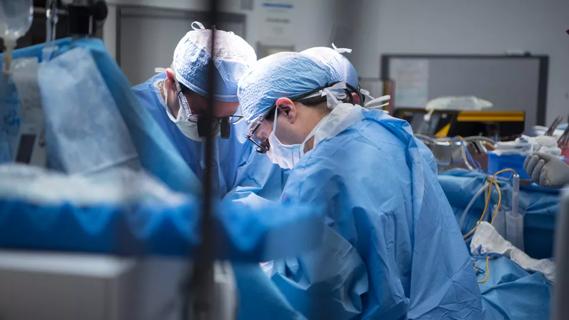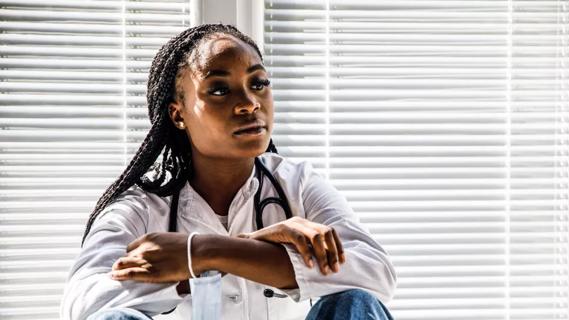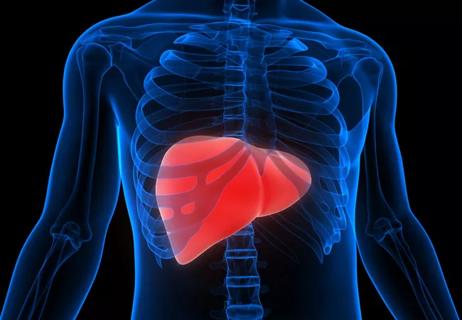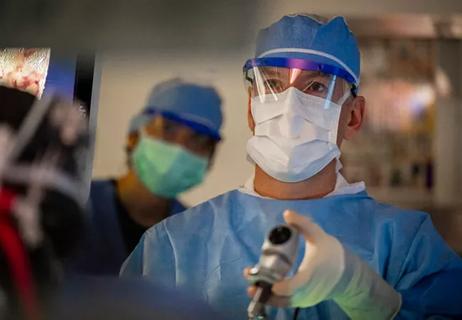One of the potential morbidities of colorectal surgery is ureteric injury. Much debate has centered on the potential salutary effects of prophylactic intraoperative ureteric catheterization to help mitigate against this potential undesirable sequelae of surgery.
Advertisement
Cleveland Clinic is a non-profit academic medical center. Advertising on our site helps support our mission. We do not endorse non-Cleveland Clinic products or services. Policy
We have previously shown clinical value of prophylactic ureteric catheters during both laparoscopic and open colorectal surgery (Nam et al, daSilva et al). Debate has ensued about the value of such catheterization.
Most recently, the minimally invasive surgery team at the Carolinas Medical Center led by B. Todd Heniford, MD, and Bradley R. Davis, MD, utilized the American College of Surgeons National Surgical Quality Improvement Program database to try to answer this question.
The authors were able to evaluate the results of 51,125 patients operated upon between 2012 and 2014. They noted that in 4.9 percent of these patients (2,486) ureteric catheters had been employed. The catheters were most frequently utilized during surgery for diverticular disease, which was also the most common scenario in which ureteric injury occurred. The overall incidence of ureteric injury in this series was 0.65 percent (333 patients).
The operative times were longer at 246 minutes in patients in whom catheters were used as compared to 176.7 minutes in patients in whom catheters were not inserted. There was no difference in the rate of ureteric injury when catheters were used (0.65% versus 0.6%, respectively) and rates of urinary tract infections were higher at 3.5 percent when stents had been placed as compared to 2.5 percent when they had not.
However, the authors also performed a multivariate analysis controlling for age, BMI, Charlson comorbidity index, diverticular disease, operative approach, T4 malignancy and operative time. With this multivariate analysis, they found a significantly decreased risk of ureteric injury when stents were employed (odds ratio = 0.446).
Advertisement
The authors concluded that patients who undergo colectomy for diverticular disease or T4 malignancy, especially through laparotomy, are at the highest risk for ureteric injury and that prophylactic ureteric catheterization decreases the incidence of such injury.
As I have noted in multiple prior posts, I am always gratified to see my own personal prejudice confirmed. I continue to routinely employ prophylactic intraoperative ureteric catheters during a wide array of elective colorectal surgical procedures. However, ideally, current research will lead to the less invasive more cost effective method of fluorescence imaging ureteric identification as we have shown feasible at Cleveland Clinic Florida (Dip et al).
Advertisement
Advertisement

Strong patient communication can help clinicians choose the best treatment option

ctDNA should be incorporated into care to help stratify risk pre-operatively and for post-operative surveillance

The importance of raising awareness and taking steps to mitigate these occurrences

New research indicates feasibility and helps identify which patients could benefit

Treating a patient after a complicated hernia repair led to surgical complications and chronic pain

Standardized and collaborative care improves liver transplantations

Fewer incisions and more control for surgeons

Caregiver collaboration and patient education remain critical